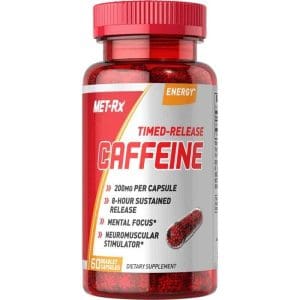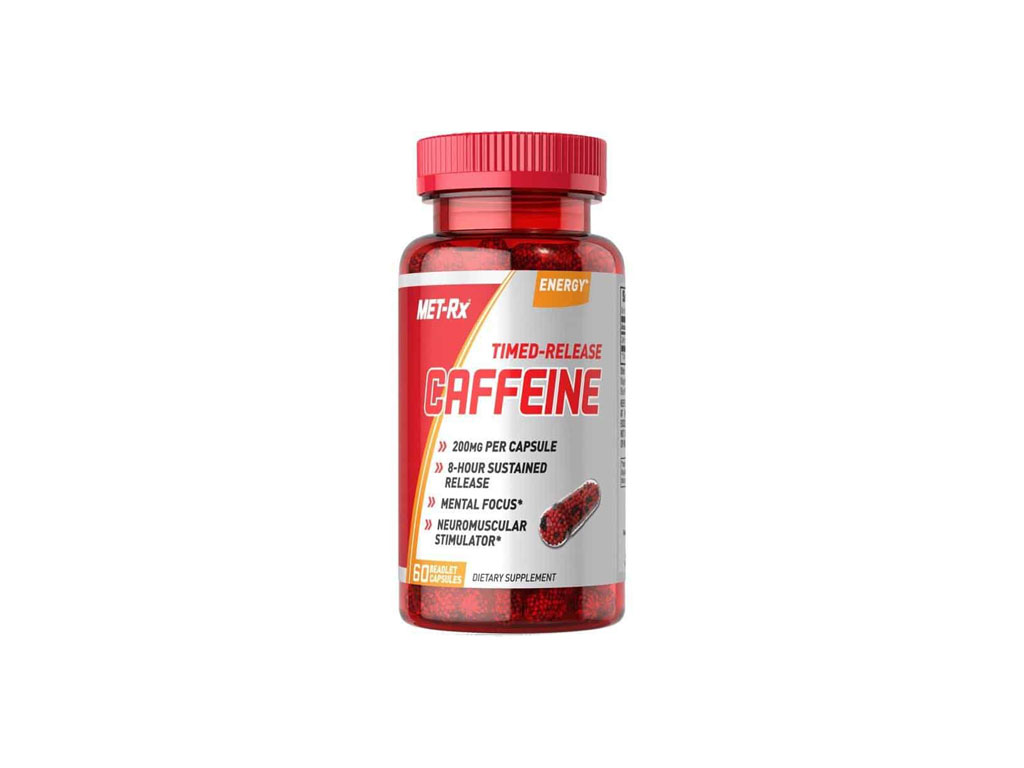 Caffeine supplements are used in everything from nootropics to fat burners.
Caffeine supplements are used in everything from nootropics to fat burners.
Caffeine can be found in a whopping 60 plant sources (and in 60% of American adults’ daily diets). This stimulant can deliver a variety of health benefits, from its hallmark alertness and mental boost to better workout performance.
Given this, it’s not surprising that caffeine supplements—and supplements like fat burners, nootropics and pre-workout mixes, which incorporate this stimulant into their blends—are becoming more popular. Here’s a quick history of caffeine supplements, including the recent FDA ban on pure caffeine.
The current ban on pure caffeine
Highly concentrated caffeine comes in the form of a colorless liquid or fine white granules. While these products might not look life-threatening, two deaths have been linked directly to pure caffeine. This is one of the main reasons why the FDA banned the sale of highly concentrated caffeine products this year.
This doesn’t mean you should say no to your morning cup of Joe or other caffeine products, which can have some health benefits. The FDA says 10 to 14 grams of caffeine can be life threatening, and one teaspoon of pure powdered product contains a whopping 3.2 grams of caffeine. (That’s way more than what you need through the day.) If you’re drinking two cups of coffee a day, your caffeine intake will vary between 100 and 200 mg. That’s a safe amount, and the golden rule of caffeine supplements is don’t take more than you need to.
Past caffeine controversies
This isn’t the first time caffeine has come under scrutiny. In 2003, the FDA banned supplements containing ephedra. The extract was turning out to be a dangerous stimulant that was causing deaths and adverse physiological reactions. Moreover, manufacturers were adding other phytochemicals/alkaloids to their ephedra products, thus making people wary of caffeine.
But it’s important to know that FDA-banned pure caffeine powder is not the same as a caffeine supplement, many of which have been backed by science.
Caffeine in fat burners, pre-workout and nootropic supplements
Caffeine stimulates the central nervous system and is found naturally in kola nuts, tea leaves and coffee beans. These extracts are used to create caffeine pills, which can provide the same effects as the beans and nuts themselves (albeit in the form of a supplement). Caffeine is also used as a key ingredient in many supplement blends.
People often prefer caffeine supplements because you get the energy boost minus the calories from a cup of Joe with cream and sugar—or to get its effects along with other proven ingredients. Coffee also contains certain oils that may raise cholesterol levels, whereas caffeine pills do not contain coffee oils.
In fat burners, caffeine is used to rev up your metabolism. In pre-workout supplements, it delivers quick bursts of energy needed to fuel quality gym sessions. And in nootropics, caffeine promotes focus without the side effects of pharma drugs. In all these supplement types, caffeine is one of many ingredients, which maximizes your benefits and reduces your chances of having too much of this stimulant.
Additional benefits of caffeine
Mental clarity
During our waking hours, the brain produces adenosine, which allows us to relax and eventually doze off. Caffeine hijacks this process, and in turn helps us stay alert and decreases fatigue. The subsequent dopamine release and adrenaline boost allow us to stay active, both physically and mentally. This is one reason why caffeine is being used in proven nootropics blends.
Fat burning
There’s a reason caffeine is a common ingredient in many weight-loss supplements. A number of studies point to caffeine’s role as a metabolic rate enhancer. This allows a person to burn fat at a faster rate than usual.
Other benefits
Observational studies have found a link between caffeine and reduced risk of diabetes. Coffee has also been shown to provide protection against alcoholic and non-alcoholic liver cirrhosis.
Caffeine side effects
The stimulating nature of caffeine supplements—or the taste of that cup of Joe—might urge you to up your daily dosage, but that’s a bad idea. While caffeine isn’t addictive like other stimulants, it can negatively affect your body if you take too much.
Too much caffeine can increase anxiety and nervousness, and result in mild to severe sleeping disorders. Gut health is improved with small doses, but excess caffeine might cause diarrhea, increased blood pressure, a rapid heart rate and nausea.
If you really want to experience the benefits of caffeine supplements, the trick is to moderate your consumption. That’s exactly why the U.S. Army launched a digital tool for helping soldiers—and curious civilians—get the most benefit from the least amount of caffeine.
Non-caffeine alternatives
Caffeine jitters is a common symptom among regular consumers, and green tea is a good alternative. Certain green tea compounds improve cognitive function and mood. An amino acid in green tea is known to have anti-anxiety effects, which gives you a more “stable buzz.”
Wheatgrass juice is extremely potent because it not only helps rid your body of toxins but can also improve metabolism, lower one’s blood pressure and boost energy. Probiotics are known to improve gut health and can be a great morning caffeine alternative. If you’re stressed out, give coconut water a shot. This healthy drink is loaded with electrolytes that help replenish your energy.
Caffeine supplements can enhance everything from weight loss and exercise performance to mental clarity. But to reduce your risk of too much of this stimulant, it’s best to take it as part of a high-quality formula geared toward your specific goals. Try a nootropic that improves focus, a pre-workout supplement that fuels a better workout, or a fat burner that promotes healthy weight loss when paired with exercise.
I’m not just a supplement analyst. I’m an extremely qualified one! I am a Certified Nutrition Coach (CNC) and actually received my certification directly from the National Academy of Sports Medicine. I am also a Nutrition & Wellness Consultant, certified by the American Fitness Professionals Association (AFPA).


